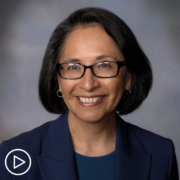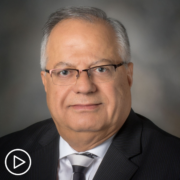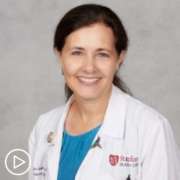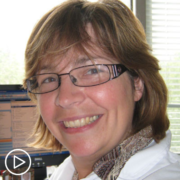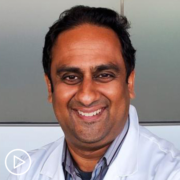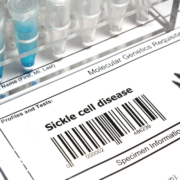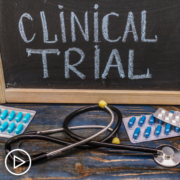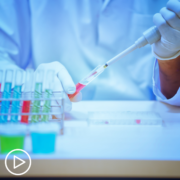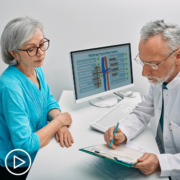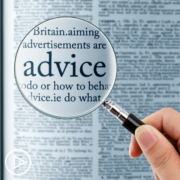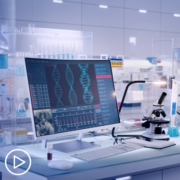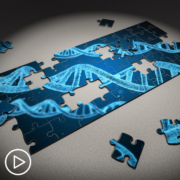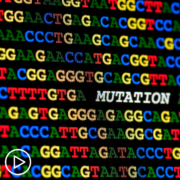Tailoring Information to Meet the Changing Needs of Patients Along Their Healthcare Journey
Being diagnosed with cancer can be a frightening experience. The diagnosis can bring up a range of emotions such as fear, shock, anger, and sadness. When I was diagnosed with breast cancer, I was initially overwhelmed by the flood of information that came my way. It seemed like there was so much to learn about the disease, its treatment options, and the potential outcomes. I found that trying to process all this information while dealing with the emotional impact of the diagnosis was incredibly challenging. It was difficult to know where to start or how to make sense of it all.
When making decisions about cancer treatment, it’s important to take your time, get organized, and be informed. Breast surgeon, Dr. Deanna Attai of the David Geffen School of Medicine at the University of California Los Angeles recommends that patients approach their appointments with a clear plan and bring along a trusted friend or family member if possible.
Having someone you trust with you during appointments can help provide support, ask questions, and take notes on important information that you may not remember later. But if you’re unable to bring someone with you, Dr. Attai suggests requesting a recording of the consultation so that you can review it later and focus solely on listening during the appointment.
Sorting through information and making treatment decisions can be overwhelming. It’s important to take the time to do research and ask questions of your healthcare team. Don’t be afraid to ask for clarification or more information if needed. The more informed you are about your options, the better equipped you will be to make the best decision for you.
It’s also helpful to stay organized and keep track of all the information you receive. This can be done by taking notes during appointments, keeping a binder or folder with important documents and test results, and creating a list of questions to bring to your appointments. By staying organized and informed, you can feel more in control of your healthcare journey and make decisions with confidence.
Changing Information Needs
As my own cancer journey progressed, my information needs changed. Initially, I focused on understanding my diagnosis and treatment options. During treatment, however, I became more interested in coping with side effects and managing the emotional toll of a cancer diagnosis. It was at this point that I discovered that the information provided by healthcare professionals didn’t always keep pace with my changing needs. This is when I turn to the internet to seek out more information.
While there is a wealth of health information available online, it’s important to approach it with a critical eye. Not all sources are trustworthy or accurate. That’s why it’s crucial to learn how to evaluate the information you find online. This previous article How to Read Beyond the Headline: 9 Essential Questions to Evaluate Medical News has many helpful tips and resources to guide you.
It’s important to remember that not all information is relevant to every patient, and what works for one person may not work for another. That’s why it’s essential to discuss what you find online with your healthcare team and ask them to help you put the information into context for your particular situation. They can help you sort through the information and determine which sources are credible and relevant to your needs.
Information Is Power
As a patient, I know that information is power. Feeling empowered and informed throughout my healthcare journey has been crucial in helping me make the best decisions for my health in line with my own personal values and needs. For example, when I was diagnosed with breast cancer, the information that was provided to me wasn’t tailored to my needs as a young woman with breast cancer. The information was aimed at a much older patient demographic and didn’t reflect the impact that breast cancer would have on me as a young woman living with the disease. It’s crucial that healthcare providers take the time to understand the unique needs of their patients and provide tailored information that helps them make informed decisions about their healthcare. Research has shown that when healthcare providers provide the right information at the right time, it increases the patient’s ability to have a more active role in decision-making.
Information and Shared Decision Making
Information plays a critical role in shared decision-making (SDM). In shared decision-making, patients and healthcare providers work together to make healthcare decisions. In order to achieve this, patients need to have access to relevant, accurate, and understandable information about their healthcare options. Providing patients with this information in a non-judgmental, unbiased, and clear manner is the responsibility of healthcare providers. It is important to provide information on the potential benefits and risks of various treatment options, the likelihood of success, and any possible side effects of medications or procedures. SDM should also consider the patient’s personal circumstances, preferences, and values.
It is the responsibility of healthcare providers to ensure that patients understand the information they receive. This may involve using visual aids, providing written materials, or using plain language to explain complex medical concepts. It is also important to give patients the opportunity to ask questions and clarify any misunderstandings they may have.
One of the key benefits of providing information in shared decision-making is that it empowers patients to take an active role in their healthcare. When patients are informed and engaged, they are better able to make decisions that align with their personal goals and preferences. Research studies have shown that patients are more satisfied with their care when they are more engaged and involved in decision-making. Furthermore, patients who are actively involved in decision-making experience less decisional conflict. Decisional conflict refers to feelings of anxiety, uncertainty, and doubt that patients may experience when making a healthcare decision. Including patients in decision-making can reduce negative emotions and improve patients’ overall well-being.
Conclusion
It has been many years since I received my diagnosis of breast cancer and as I reflect back on the journey I have taken to becoming a patient advocate, I can see how the sources of information I received helped me progress along the way.
In the beginning, I relied on information from my doctors, followed by my own research on the Internet, and then finally connecting with fellow patients online. I gained confidence as I learned more about my disease and treatments, and now I try to help people who are going through a similar thing.
As patient advocates, I firmly believe that it is our responsibility to ensure that all patients receive information that is timely, accurate, and easy to understand, to help them make informed decisions. We, as cancer patients, have accumulated a wealth of valuable information and knowledge through our personal experiences, and it’s crucial that we share this knowledge generously with those who are now starting their own patient journeys.
A Stanford Medicine X e-Patient scholar, Marie Ennis O’Connor is an internationally recognized keynote speaker, writer, and consultant on global trends in patient engagement, digital health and participatory medicine. Marie’s work is informed by her passion for embedding the patient voice at the heart of healthcare values. She writes about the experience of transitioning from breast cancer patient to advocate on her award-winning blog Journeying Beyond Breast Cancer.


